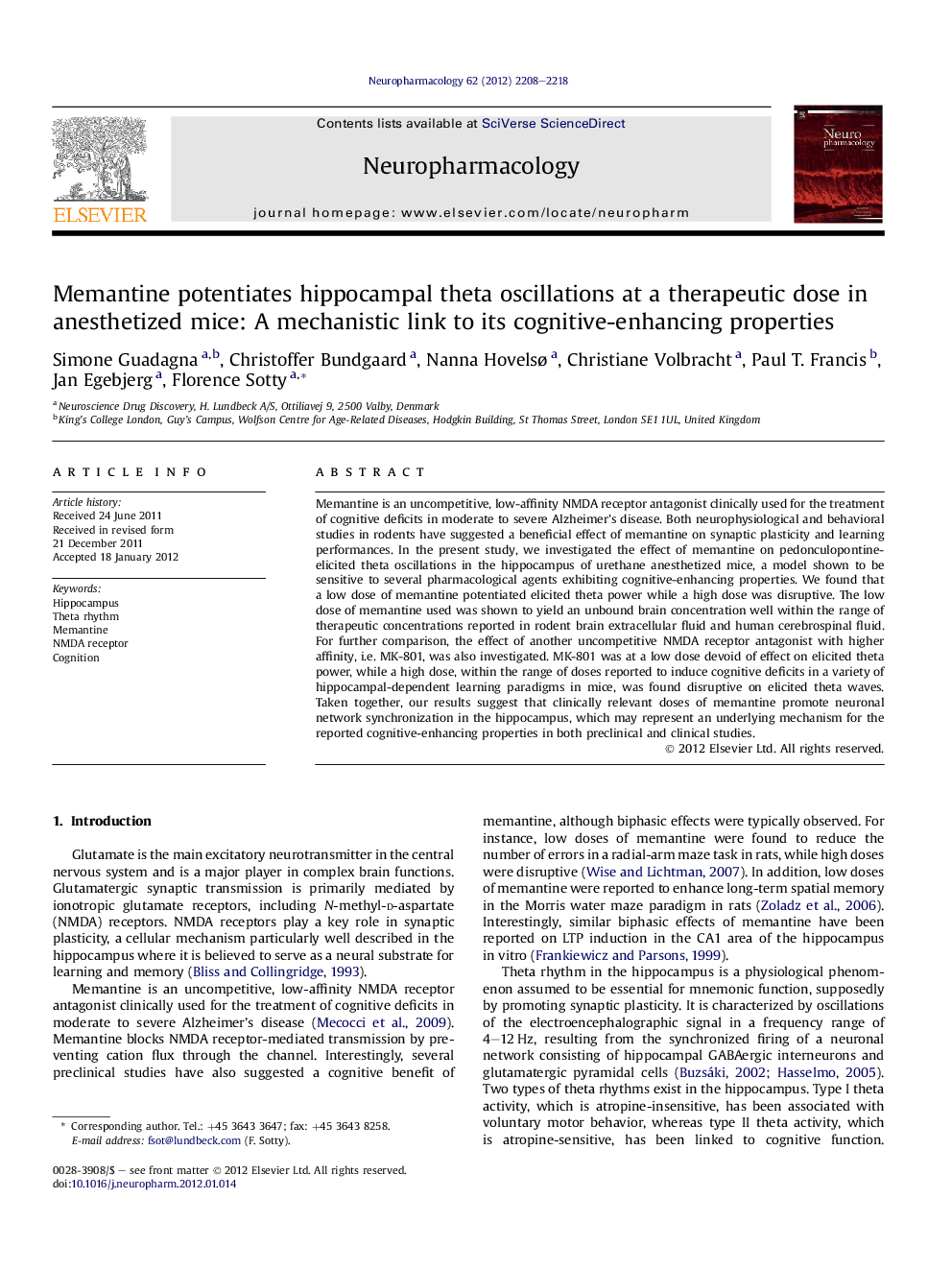| Article ID | Journal | Published Year | Pages | File Type |
|---|---|---|---|---|
| 2493511 | Neuropharmacology | 2012 | 11 Pages |
Memantine is an uncompetitive, low-affinity NMDA receptor antagonist clinically used for the treatment of cognitive deficits in moderate to severe Alzheimer’s disease. Both neurophysiological and behavioral studies in rodents have suggested a beneficial effect of memantine on synaptic plasticity and learning performances. In the present study, we investigated the effect of memantine on pedonculopontine-elicited theta oscillations in the hippocampus of urethane anesthetized mice, a model shown to be sensitive to several pharmacological agents exhibiting cognitive-enhancing properties. We found that a low dose of memantine potentiated elicited theta power while a high dose was disruptive. The low dose of memantine used was shown to yield an unbound brain concentration well within the range of therapeutic concentrations reported in rodent brain extracellular fluid and human cerebrospinal fluid. For further comparison, the effect of another uncompetitive NMDA receptor antagonist with higher affinity, i.e. MK-801, was also investigated. MK-801 was at a low dose devoid of effect on elicited theta power, while a high dose, within the range of doses reported to induce cognitive deficits in a variety of hippocampal-dependent learning paradigms in mice, was found disruptive on elicited theta waves. Taken together, our results suggest that clinically relevant doses of memantine promote neuronal network synchronization in the hippocampus, which may represent an underlying mechanism for the reported cognitive-enhancing properties in both preclinical and clinical studies.
► Hippocampal theta power is disrupted by an amnesic dose of MK-801. ► Memantine exerts dose-dependent biphasic effects on hippocampal function. ► Memantine facilitates theta rhythm at a clinically relevant dose.
